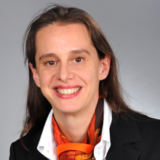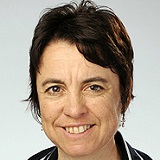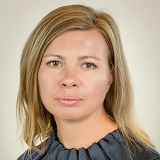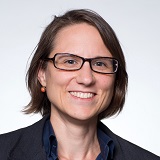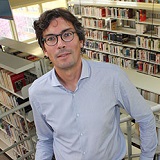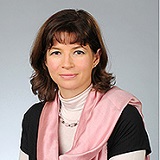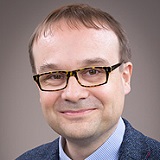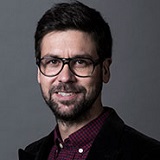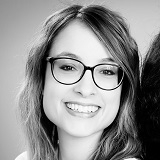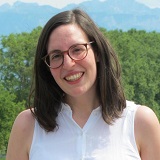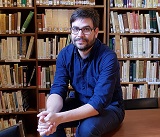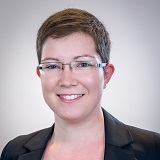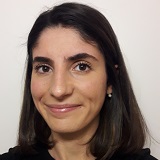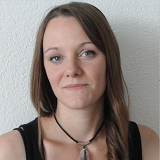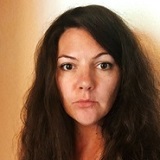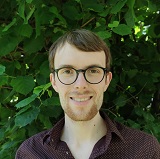Projects
Publications
Publications in the field of Economics and Business
Farah Juan Carlos/Moro Arielle/Bergram Kristoffer/Purohit Aditya Kumar/Gilet Denis/Holzer Adrian, Bringing Computational Thinking to non-STEM Undergraduates through an Integrated Notebook Application, 15th European Conference on Technology Enhanced Learning (EC-TEL), 2020.
Puntiroli Michael / Bezençon Valéry, Feedback devices help only environmentally concerned people act pro-environmentally over time, Journal of Environmental Psychology, vol. 70, 2020.
Rodriguez-Triana Maria Jesus/Prieto Luis/Holzer Adrian/Gillet Denis, Instruction, Student Engagement and Learning Outcomes: A Case Study Using Anonymous Social Media in a Face-to-face Classroom, IEEE Transactions on Learning Technologies, 2020.
Féraud Geneviève/Holzer Adrian/Vonèche Cardia Isabelle/Gillet Denis, ICT Adoption in Executive Training for Development – Blending Digital and Physical Communication and Awareness Channels, Proceedings of the 10th international conference on Information and Communication Technologies and Development (ICTD) ACM, 2019.
Compagno Dario/Pignard-Cheynel Nathalie, Le rôle des newsbots et de la publication automatisée dans la mise en circulation des contenus d’actualité sur Twitter, in : #info: Commenter et partager l’actualité sur Twitter et Facebook, Paris 2018, p. 29-53.
Govaerts Sten/Holzer Adrian/Vozniuk Andrii/Kocher Bruno/Garbinato Benoît/Gillet Denis, Blending Digital and Face-to-face Interaction using a Co-located Social Media App in the Classroom, IEEE Trans. on Learn. Technologies, 2018.
Holzer Adrian/Gillet Denis/Laperrouza Marc, Active Interdisciplinary Learning in a Design Thinking Course: Going to Class for a Reason, IEEE International Conference on Teaching, Assessment and Learning for Engineering (TALE), 2018.
Holzer Adrian/Gillet Denis/Laperrouza Marc/Maître Jean-Philippe/Tormey Roland/Vonèche Cardia Isabelle, Fostering 21st Century Skills through Interdisciplinary Learning Experiences, SEFI European Society for Engineering Education, 2018.
Mercier Arnaud/Pignard-Cheynel Nathalie (eds), #info: Commenter et partager l’actualité sur Twitter et Facebook, Paris 2018.
Marty Emmanuel/Pignard-Cheynel Nathalie/Sebbah Brigitte, Internet users’ participation and news framing: the Strauss-Kahn case-related Live Blog at Le Monde.fr, New Media and Society, vol. 19, 2017, p. 1964-1982.
Simon Justine/Toullec Bénédicte/Badouard Romain/Bigey Magali/Compagno Dario/Mercier Arnaud/Pignard-Cheynel Nathalie/Sebbah Brigitte, L’influence des discours d’accompagnement sur le partage social. Identifier et analyser les discours d’escorte sur Twitter, in: Corpus de communication médiée par les réseaux : construction, structuration, analyse, Paris 2017, p. 52-70.
Publications in the field of Social Sciences
Huber Alexandre, Rétrodigitalisation du Glossaire des patois de la Suisse romande: inauguration du portail web, in: Aquino-Weber Dorothée/Greub Yan (eds), La lexicographie informatisée: les vocabulaires nationaux dans un contexte européen, Swiss Academies Report, vol. 15, N°1, 2020, p. 119-137.
Johnsen Laure Anne, OFROM, corpus oral de français de Suisse romande: une ressource pour la recherche… et pour l’enseignement/apprentissage du français !, Babylonia, 2020, p. 44-53.
Koslicki Kathrin, The Threat of Thinking Things into Existence, in: Oliveira Luis/Corcoran Kevin (eds), Commonsense Metaphysics: Essays in Honor of Lynne Ruder Baker, New York 2020, p. 113-136.
Mortelmans Tanja/Smirnova Elena, Analogues of the way-construction in German and Dutch: another Germanic sandwich?, in: De Vogelaer Gunther/Koster Dietha/Leuschner Torsten (eds), German and Dutch in contrast: synchronic, diachronic and psycholinguistic perspectives, Berlin/Boston 2020, p. 47–76.
Rossari Corinne/Chessex Jessica/Ricci Claudia/Walther Iveta/Wandel Dennis, Distribution of modal expressions of possibility and necessity in three encyclopedias covering two diachronic spans (18th and 21st centuries), 15èmes Journées internationales d’Analyse statistique des Données Textuelles (JADT), 2020.
Rossari Corinne/Dolamic Ljiljana/Hütsch Annalena/Ricci Claudia/Wandel Dennis, Discursive Functions of French Modal Forms: What can Correspondence Analysis tell us about Genre and Diachronic Variation?, in: Iezzi Domenica Fioredistella/Mayaffre Damon/Misuraca Michelangelo (eds), Text Analytics – Advances and Challenges, 2020, p. 145-157.
Stefanowitsch Anatol/Smirnova Elena/Hüning Matthias, Complex Adpositions in three West Germanic Languages, in : Fagard Benjamin/Stosic Dejan/Pinto de Lima José/Smirnova Elena (eds), Complex Adpositions in European Languages, Berlin/Boston 2020, p. 65-138.
Bermúdez Sabel Helena, Encoding of Variant Taxonomies in TEI, Journal of the Text Encoding Initiative, vol. 11, 2019, p. 1-27.
Dell’Oro Francesca, L’expression de la modalité par des adjectifs: une comparaison entre l’adjectif grec ancien en -ιμος et l’adjectif latin en -bilis, ACME, vol. 72, 2019, p. 193-209.
Dell’Oro, Francesca, WoPoss guidelines for annotation, Zenodo, 2019.
Dell’Oro Francesca/Bermúdez Sabel Helena/Marongiu Paola, Implemented to be shared: The WoPoss annotation of semantic modality in a latin diachronic corpus, Proceedings of the DARIAH-CH Workshop, Neuchâtel 2019.
Flückiger Fabrice/Aberle Marc/Beretta Francesco, Voting on faith: Mapping reformation ballots with the methods and tools of digital history, Proceedings of the DARIAH-CH Workshop, Neuchâtel 2019.
Gabay Simon/Paupe Élodie/Schulthess Sara (eds), Proceedings of the DARIAH-CH Workshop, Neuchâtel 2019.
Ruiz Fabo Pablo/Bermúdez Sabel Helena, Navegación de corpus a través de anotaciones lingüísticas automáticas obtenidas por Procesamiento del Lenguaje Natural: de anecdótico a ecdótico, Revista de Humanidades Digitales, vol. 4, 2019, p. 136-161.
Smirnova Elena/Mailhammer Robert/Flach Susanne, The role of atypical combinations in the grammaticalization of passives in German and English, Diachronica, vol. 36, 2019, p. 384–416.
González Déborah/Bermúdez Sabel Helena (eds), Humanidades Digitales. Miradas hacia la Edad Media, Berlin 2018.
Koslicki Kathrin, Form, Matter, Substance, Oxford 2018.
Rossari Corinne, The representation of modal meaning of French sentence adverbs in a qualitative and quantitative approach, Linguistik Online, vol. 92, N 5, 2018, p. 235-255.
Tittel Sabine/Bermúdez Sabel Helena/Chiarcos Christian, Using RDFa to Link Text and Dictionary Data for Medieval French, in: McCrae John and al. (eds), Proceedings of the 6th Workshop on Linked Data in Linguistics (LDL-2016): Towards Linguistic Data Science, Paris/Miyazaki 2018.
Bermúdez Sabel Helena/Curado Malta Mariana/González-Blanco Elena, Towards Interoperability in the European Poetry Community: The Standardization of Philological Concepts, in: Gracia Jorge and al. (eds), Language, Data, and Knowledge, Galway 2017, p. 156-165.
Massin Olivier, The Metaphysics of Ownership: A Reinachian Account, Axiomathes, vol. 27, 2017, p. 577-600.
Massin Olivier/Tieffenbach Emma, The Metaphysics of Economic Exchanges, Journal of Social Ontology, vol. 3, 2017, p. 167-205.
Ricci Claudia/Rossari Corinne/Siminiciuc Elena, La représentation des sens modaux dans trois langues romanes : le français, l’italien et le roumain. Du qualitatif au quantitatif et retour, Syntaxe et sémantique, 2016, p. 93-113.
Rossari Corinne, Les fluctuations de sens dans quelques formes modales à la lumière d’une approche quantitative et qualitative, Studii de lingvistică, vol. 6, 2016, p. 127-142.
Rossari Corinne/Hütsch Annalena/Ricci Claudia/Salsmann Margot/Wandel Dennis, Le pouvoir attracteur de mais sur le paradigme des adverbes épistémiques : du quantitatif au qualitatif, 13èmes Journées internationales d’Analyse statistique des Données Textuelles (JDAT), 2016.
Smirnova Elena, Die Entwicklung des deutschen zu-Infinitivs: Eine Korpusstudie, Beiträge zur Geschichte der deutschen Sprache und Literatur, vol. 138, 2016, p. 491–523.
Rérat Mélissa, L’art vidéo au féminin: Emmanuelle Antille, Elodie Pong, Pipilotti Rist, Critique d’art, 2014.





